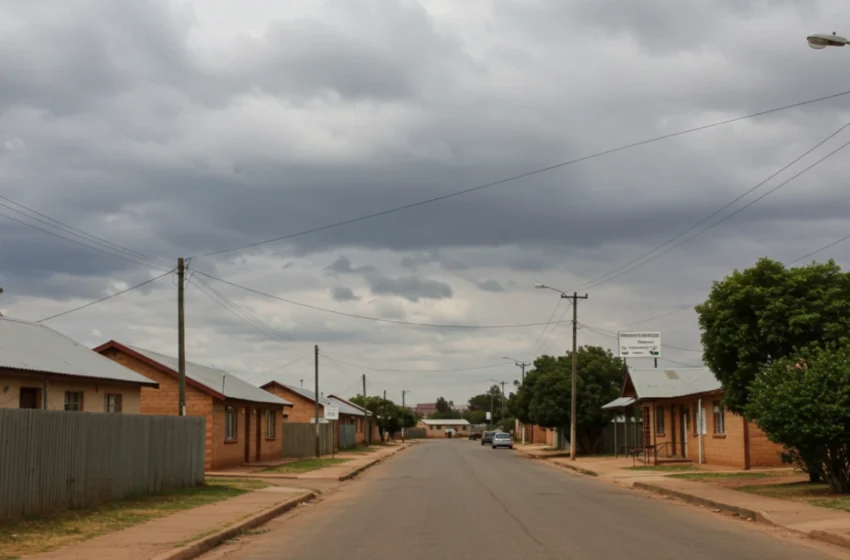Kleinfontein court battle: Will residents be asked to pay years of unpaid rates?

Illustration of Kleinfontein settlement in Pretoria
The legal battle between the City of Tshwane and the whites-only Kleinfontein settlement east of Pretoria has put homeowners on edge. Central to this dispute is a pressing concern: could residents be forced to pay years of accumulated municipal rates?
Kleinfontein is a 650-unit Afrikaner-only settlement that has operated largely outside municipal regulations for decades. The community includes homes, a school, a shopping centre, a light industrial area, and an old-age home. Despite this development, the township was never formally approved, and the land was not rezoned from agricultural to residential. In 2024, the North Gauteng High Court officially declared Kleinfontein an illegal settlement. This designation allowed Tshwane to enforce compliance with modern legislation, including the Spatial Planning and Land Use Management Act (SPLUMA). The municipality has now filed an urgent application requiring Kleinfontein to update its 2013 township submission, warning that failure to comply could result in demolition of the unapproved buildings.
Skyrocketing Rates and Financial Concerns
For residents, one of the most immediate concerns is the massive increase in property rates. Following the High Court ruling, Tshwane adjusted Kleinfontein’s valuation in the 2024/2025 general valuation roll, raising it from approximately R21 million to a far higher figure. This led to a dramatic increase in the monthly rates bill, which jumped from around R5,230 to over R2 million for the entire settlement — an astonishing 6,000% rise. Residents have expressed frustration, pointing out that the community receives no municipal services, relying instead on boreholes, water fountains, a solar farm, and private infrastructure to meet their needs.
Tshwane insists that the adjustment aligns with legal requirements and is consistent with how the municipality enforces regulations across 17 other illegal settlements. However, it remains unclear whether retroactive billing for past years will be applied, leaving homeowners uncertain about the potential financial impact.
Read Also
- After Kleinfontein: these 17 Tshwane settlements could face demolition or legal action
- Kleinfontein court battle: What it means for homeowners in Tshwane
The Court Case and Legal Framework
The court case itself revolves around updating Kleinfontein’s decade-old township application. Tshwane argues that the original 2013 submission, lodged under the now-defunct Development Facilitation Act (DFA), does not meet the requirements of SPLUMA and current municipal by-laws. The city emphasises that, because the settlement operated illegally for decades, it was deprived of the opportunity to assess land suitability, impose conditions, enforce environmental and building controls, and levy financial contributions.
Residents’ Response and Concerns
For residents, the threat of retroactive rates compounds existing worries. Board chair Rian Genis has acknowledged that complying with Tshwane’s demands would be costly, but believes the court case could finally clarify the applicable legislation. While the threat of demolition remains, he regards it as unlikely, signalling that negotiation and legal interpretation will largely determine any financial obligations. Residents also argue that the municipality’s approach is politically motivated against their cultural community and that retroactive billing would place a severe financial burden on families who already self-fund infrastructure and services.
Wider Implications for Other Settlements
The outcome of the court case will not only influence Kleinfontein but could also set a precedent for at least 17 other illegal settlements in the Tshwane metro. Homeowners in similar communities should be aware that the ruling could affect rates enforcement, potentially exposing residents to retroactive payments or higher charges aligned with updated valuations. Whether Kleinfontein is legalised or demolished, it is clear that financial uncertainty looms large for its residents.




